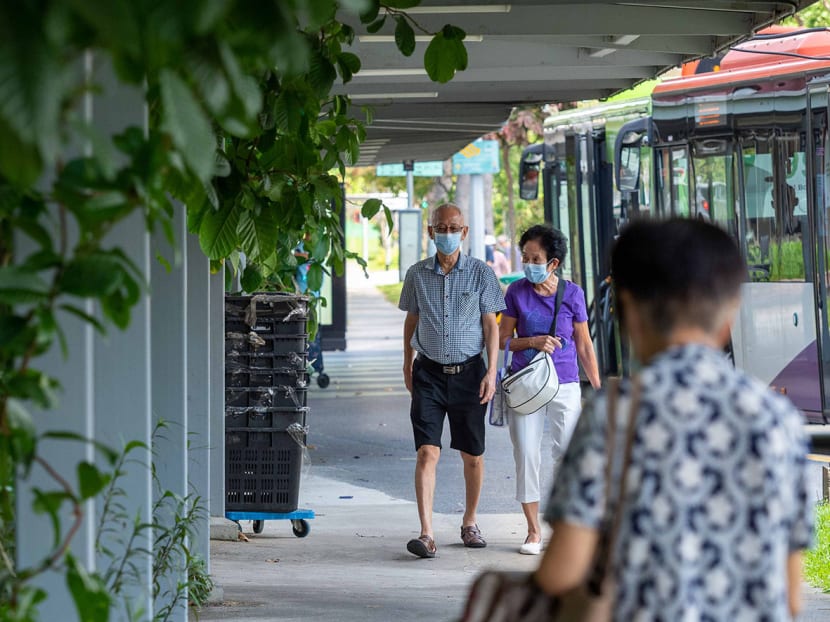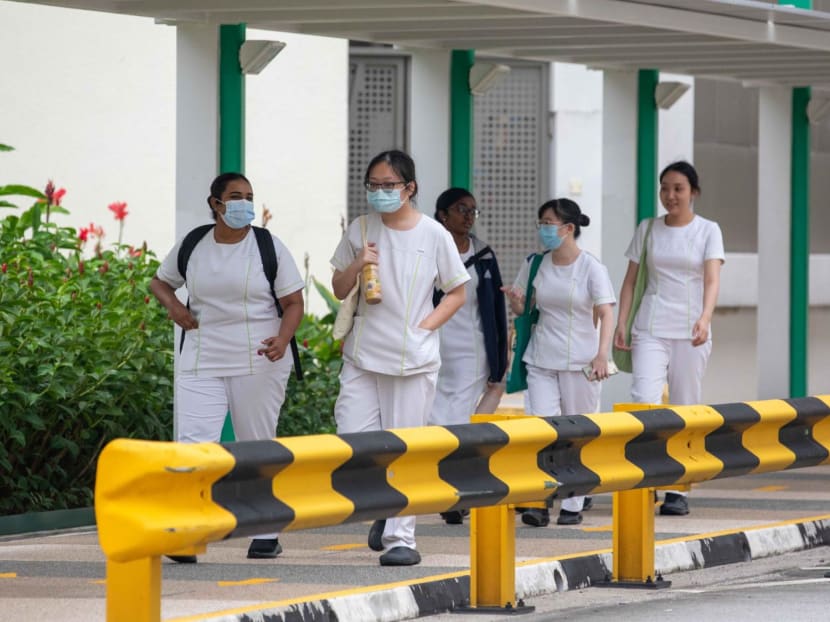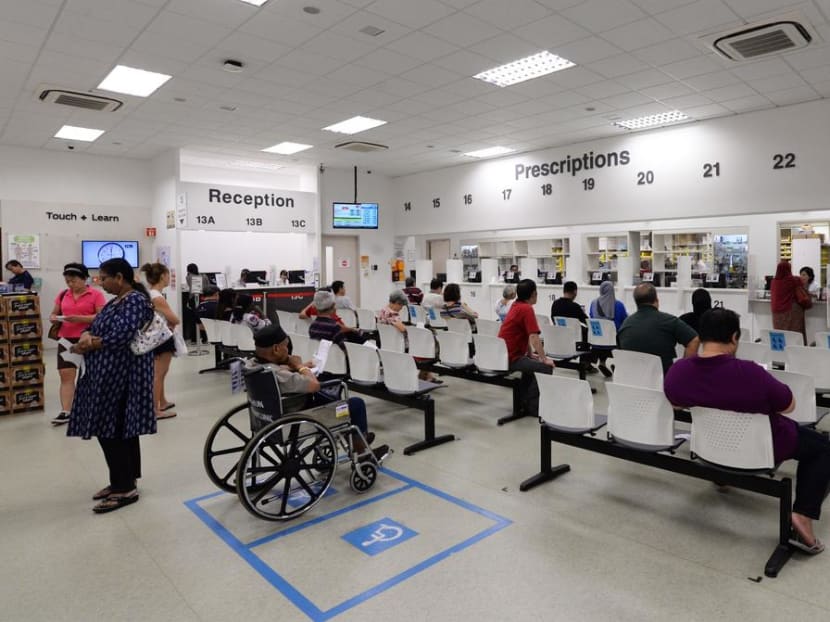Commentary: 3 big shifts to watch out for in Singapore's healthcare system in 2024 as it prepares for challenges ahead
2023 will be remembered for the introduction of Healthier SG, Age Well SG, Cancer Drug List, a new Implant Subsidy List and more — but amid all the activity and announcements, it can be easy to miss the forest for the trees.
2023 will be remembered for the introduction of Healthier SG, Age Well SG, Cancer Drug List, a new Implant Subsidy List and more. Healthier SG and Age Well SG shift the focus from disease to health and well-being, while the two Lists clarify what specific drugs and devices government subsidies and MediShield Life payouts can be used for.
Such initiatives are undoubtedly setting Singapore healthcare up for a very different 2024 and beyond. No one likes change, but, as the saying goes, the chickens have come home to roost, and healthcare can no longer avoid the imperative for genuine transformation.
Amid all the activity and announcements, it can be easy to miss the forest for the trees. As we move ahead into the new year, it’s worth stepping back to make sense of three big philosophical shifts that are shaping 2024 and beyond: ‘The Necessary Pursuit of Value’, ‘Health in All through All’ and the ‘Return of Big G government’.
THE NECESSARY PURSUIT OF VALUE
I was privileged in the last month to be invited to two overseas expert meetings on health financing — one organised by a global pharmaceutical company, the other by the World Health Organization’s Western Pacific Regional Office.
In both events, what struck me was the commonality of concerns, namely the stark fiscal challenges virtually every government faces and the consequent pressures on the health system to do more with less. Experts and policymakers all over the globe agree that in the next few years, healthcare spending will have to be tightened and costs managed much more stringently.
On the spend side, Singapore has not been spared. The goods and services tax went up another percentage point on Jan 1, 2024 — a move the finance ministry explained by citing healthcare as the first and foremost concern, soberly reminding taxpayers that “healthcare expenditure will rise significantly”.
On the cost side, there are pressing needs to manage better and obtain more value for every dollar spent. Credit to the Ministry of Health, in the meantime, for holding the line on cost management measures including co-payments for MediShield Life Integrated Plans, the Cancer Drug List, the new Implant Subsidy List and similar initiatives despite their unpopularity.
These realities won’t change; in fact, they will only become more pronounced with time. In a mere seven years, one in four Singaporeans will be over 65 years of age. As a nation, we have to accept that trade-offs are inevitable and will likely get harder and more painful — that is, unless we all somehow become healthier and fall ill less.

‘HEALTH IN ALL THROUGH ALL’
Despite healthcare’s obvious complexities, some fundamentals remain simple: Healthy people utilise less and less expensive healthcare than unhealthy people.
If we could reduce the numbers of unhealthy Singaporeans and increase the numbers of those enjoying healthy longevity until their final months, we could slow the trajectory of healthcare expenditure.
Thankfully, Singapore is approaching health and well-being in the right way, appreciating the profound influence of the social determinants on health outcomes.
Age Well SG, which will roll out fully in 2024, is a joint effort spearheaded by three ministries: Health, national development and transport. This is crucial as it recognises that ageing well is not just about access to healthcare, but also physical connectedness and connectivity.
The three ministries joining hands is vital in order for the upcoming 200 Active Ageing Centres to be appropriately sited with easy accessibility, as they host activities that Singapore seniors want to and can participate in.
In Healthier SG, Health Minister Ong Ye Kung has repeatedly advocated for “social prescribing”, recognising that “about 60 per cent of health is socially determined. It is not determined in the hospitals; it is determined in homes and communities”.
Operationally, general practitioners in Toa Payoh have partnered with Care Connect to facilitate prescribing social support programmes for suitable patients.
In 2024, many more such grassroots efforts have to intensify.
‘RETURN OF BIG G GOVERNMENT’
In primary care, the Government has traditionally been somewhat hesitant about overreach. It took 17 years for Singapore’s first polyclinic in Queenstown to be followed by one in Marine Parade, but in the last decade, polyclinics have aggressively mushroomed all over Singapore. In fact, the Government has announced plans to add nine more polyclinics by the year 2030.
The sophistication of the polyclinic has also grown. Beyond acute and chronic disease management, Sembawang Polyclinic, which opened in November 2023, even offers a health and wellness studio in which healthy cooking workshops as well as weight and exercise programmes will be carried out.
In hospital services, the Government has always played a large role, but this role has grown even larger. The last private hospital opening was Farrer Park Hospital in 2016. With no new private hospital licences planned for, Woodlands Health (1,800 bed capacity) which will open fully in May 2024 and the Bedok hospital scheduled for 2030, will further cement the Government’s dominance in hospitals.
Why is this happening? After all, Singapore has always been pro-market and friendly to business. Why not build less under the broad umbrella of the Government and instead harness the resources of the private sector?

Here, Minister Ong has used the Chinese phrase “同床异梦” (share the same bed but have different dreams) to describe principal-agent misalignment.
Unfortunately, our health system — like virtually every other health system — is built around sickness rather than healthcare, with no clear business model to prioritise preventive health over treating illnesses. Simply put, there is no money to be made in the short term.
The market fails for health (rather than sickness care), and the Government has to step in to overcome this market failure.
Regrettably, ‘future health’ is something not even our present selves will invest in seriously in our day-to-day lives, let alone on a system-wide scale. Maximising value from healthcare spend is not a priority for most healthcare providers, who are instead commercially motivated to provide more and more high-priced services.
The preceding-build up period of 2023 has prepared us for the three shifts in healthcare that 2024 will fully embrace. These three shifts are intertwined, and must be taken together in order to be understood fully.
The most societal value can often be created in healthcare only by promoting health, keeping patients away from providers, and in fact preventing people from even becoming patients.
These laudable goals, which will shape Singapore’s health system in 2024 and beyond, have to be led by the Government — at least until such time that a business model attractive to the private sector becomes embedded.
Singapore has a proud history of making virtue out of necessity, especially in tough times. We find ourselves now at yet another inflection point: Can 2024 see Singapore establish successfully our healthcare model for the future, and be a beacon for other countries similarly struggling with rapid ageing and spiralling costs?
No country has succeeded thus far. Perhaps Singapore will be the one to provide hope for a way forward.
ABOUT THE AUTHOR:
Associate Professor Jeremy Lim is a medical doctor and public health specialist. He is author of Myth or Magic: The Singapore Healthcare System, for which he is currently working on an updated edition.










